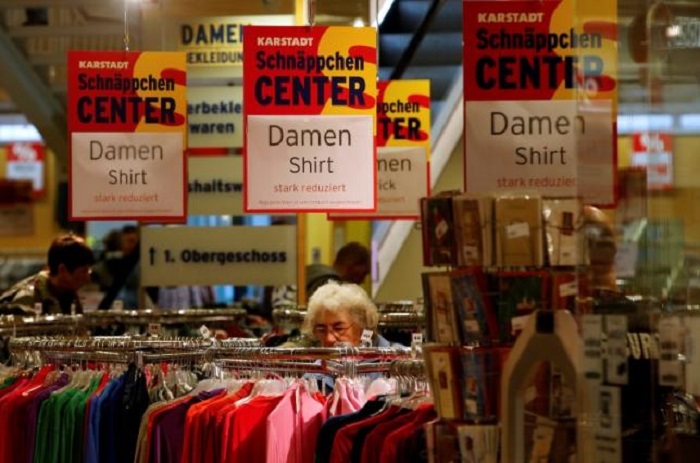Prices edged down on the year in six German states, turning negative in three while falling to 0.1 or 0.2 percent in the rest, the preliminary data showed.
The state readings will feed into nationwide data due at 1200 GMT.
The euro area has struggled with little or no inflation for the past year and the ECB expects the bloc-wide figure to turn negative again before slowly ticking up, but staying below its target of just under 2 percent for some years.
Capital Economics analyst Jennifer McKeown said the state data suggested pan-German EU-harmonized consumer price inflation (HICP) fell to 0.0 percent, which would be in line with the Reuters consensus forecast.
The reading was 0.1 percent in March.
"German inflation is likely to remain very weak over the next couple of months before energy effects push it to around 1.5 percent by year-end," McKeown said.
Due to the economic upswing and the robust labor market, price pressures in Germany are not as weak as elsewhere in the euro zone. Still, inflation expectations are very subdued and wage growth has slowed recently.
"Even in the euro zone`s largest and arguably strongest economy, inflation seems unlikely to reach the ECB`s near 2 percent target over the medium term," McKeown said.
For the euro zone, economists polled by Reuters expect the April inflation rate, due out on Friday, to have fallen to -0.1 percent from 0.0 percent in March.
On Wednesday, ECB policymakers played down the need for more stimulus in the near term, calling for people to be patient and wait for existing measures to take effect.
The ECB unveiled a surprisingly large stimulus package in March but falling inflation expectations have fueled expectations of more easing, possibly as early as June when the bank`s staff present new growth and inflation forecasts.
More about:
















































